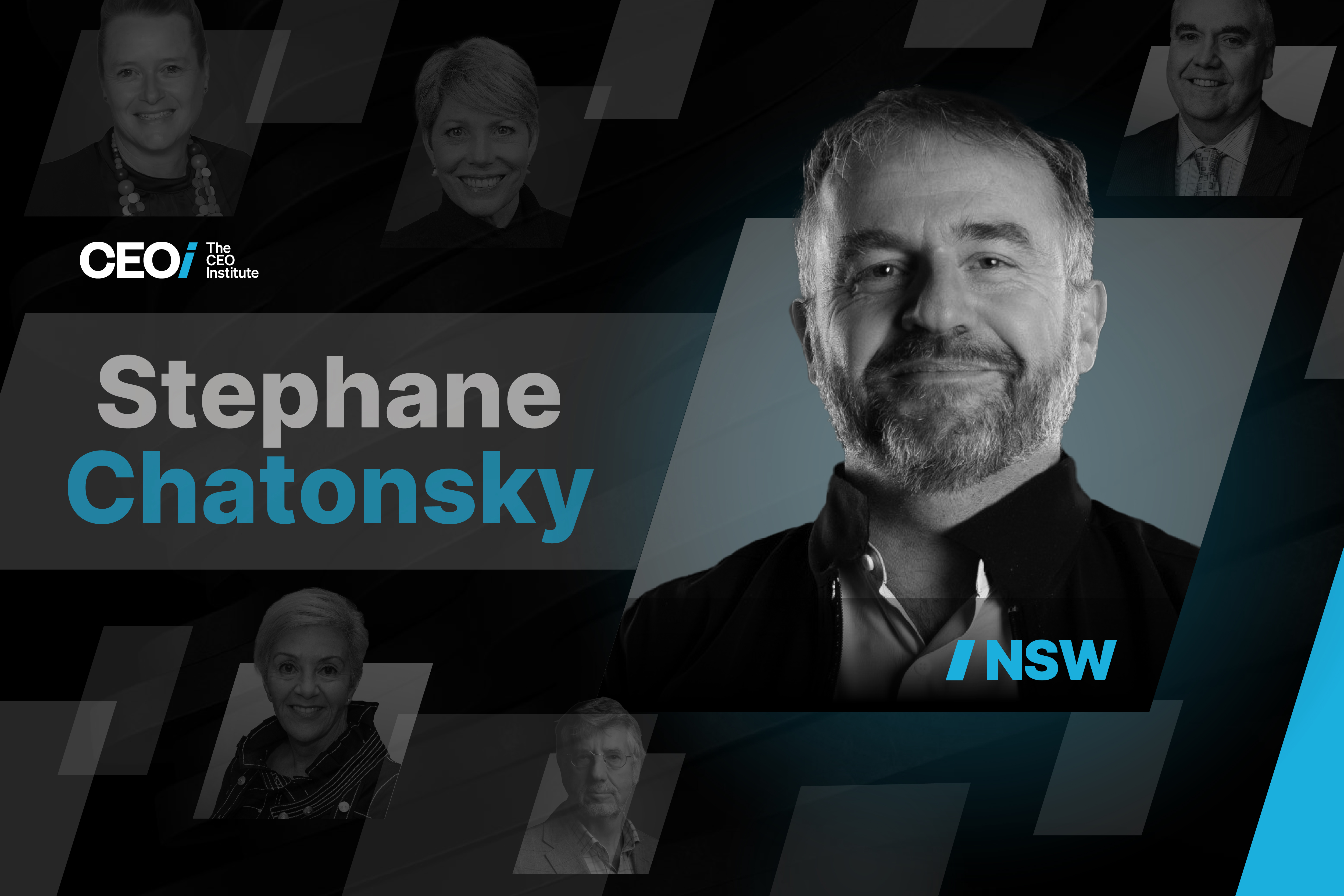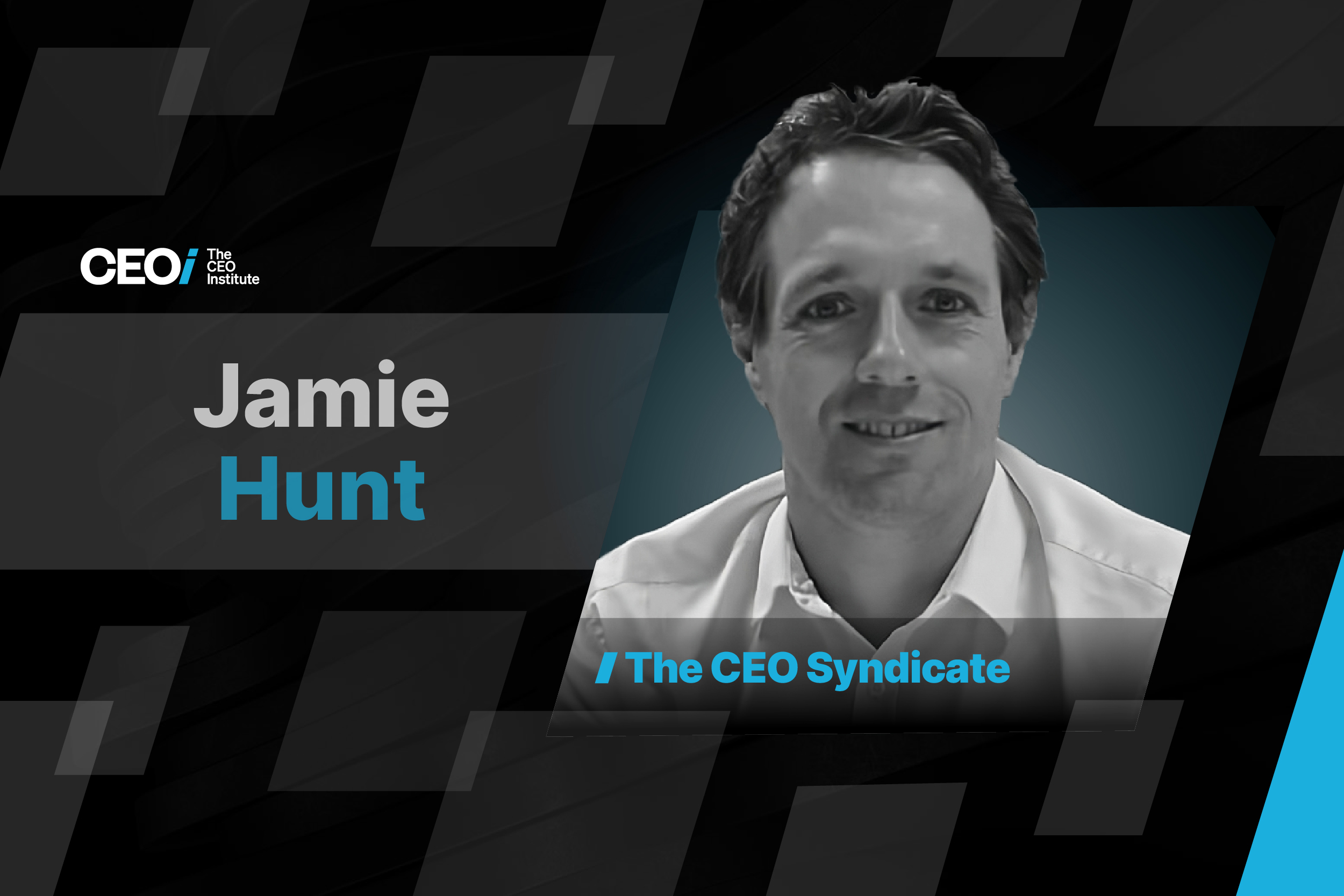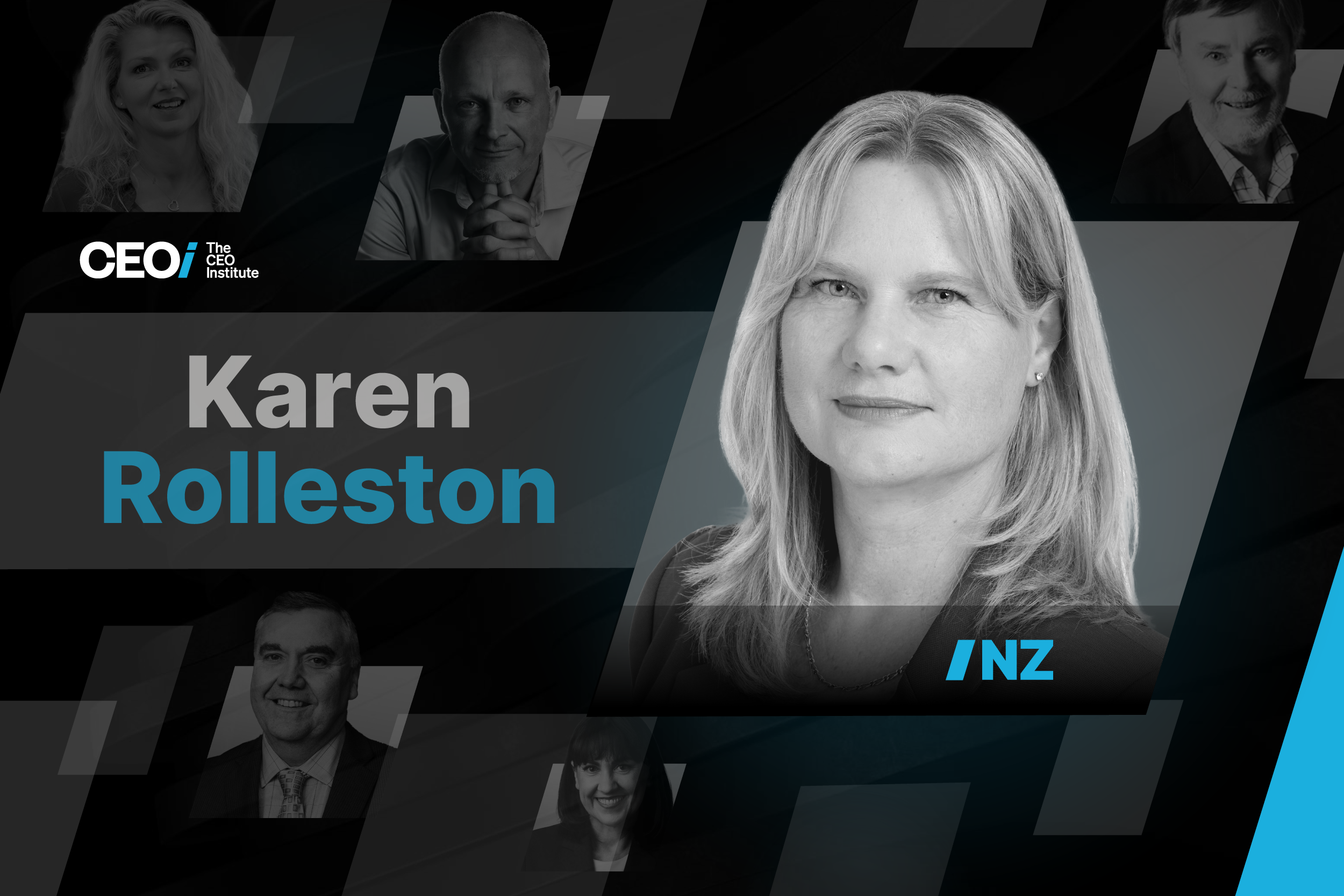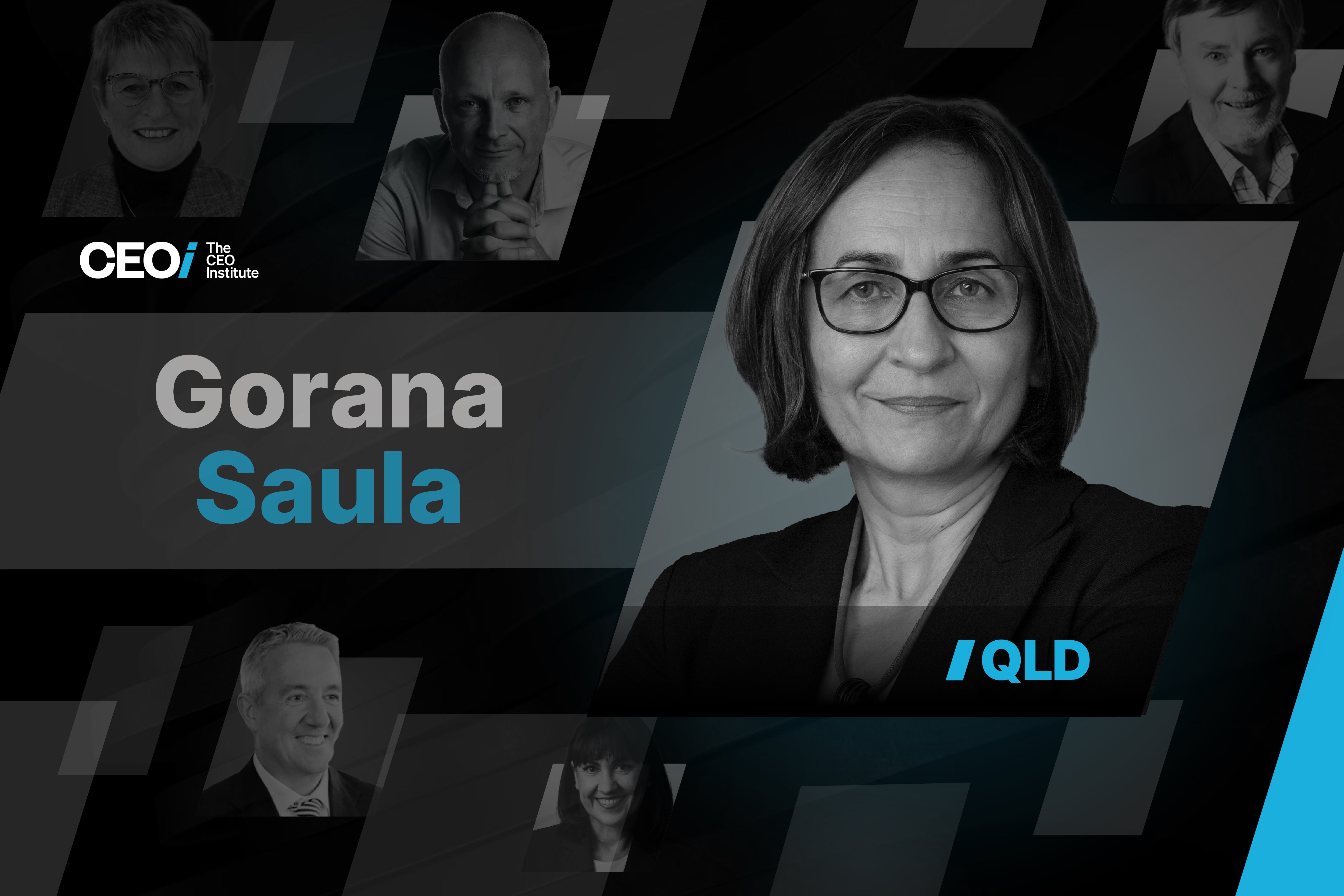Member Case Study
At The CEO Institute, our members are the heartbeat of every Syndicate. They bring their challenges, experiences, and leadership journeys into the...

At The CEO Institute, our Chairs play a pivotal role in every Syndicate. They challenge perspectives, share hard-won wisdom, and facilitate the peer-to-peer support that helps CEOs gain clarity, confidence, and real-world solutions. Our Chair Case Study series, spotlights the people who guide our members through their biggest challenges and boldest decisions. Today, we sit down with NSW Chair Stephane Chatonsky to explore his global business journey, the leadership lessons he's carried forward, and how he's helping CEOs find clarity and authenticity through his role at The CEO Institute.
Can you share a brief overview of your professional background and what led you to become a Chair for the CEO Syndicate?
I started my career in investment banking in Europe before heading to the U.S. to complete my MBA. I then moved to Australia in the late '90s, where I began my journey with McKinsey and then moved to Macquarie Bank's Venture Capital division. Since then, I have worked extensively in private equity and venture capital, holding various roles, including Partner at Leapfrog Investments, a global company focused on "Profit with Purpose". Nowadays, my professional portfolio spans non-executive directorships and angel investments, in particular in the health tech space, advisory, and academic involvement in Australian universities. I also serve as an Expert Witness for the Federal Court of Australia.
More than a decade ago, the CEO Institute reached out to me due to my combined business and academic background. Initially, I saw it as an opportunity to lead with process, rather than content —something new to me given my academic very content focused background.
What motivated you to work with The CEO Institute, and how does the role of Chair align with your personal and professional values?
Since the start, my focus has been to create a safe space for CEOs to speak openly about professional but also personal issues. I aim to create a supporting environment, that fosters authentic leadership and vulnerability.
In your experience, what are the core qualities of a successful business leader, and how do you foster these in your syndicate sessions?
I’d say there isn’t just one type of leader—there are many ways to lead, and each leader brings something unique. What’s important is authenticity, both with others and with yourself. It’s about not hiding who you are and staying true to your personal values. Equally important is generosity—investing in the growth of others through time, care, and support. And, of course, doing the work, gaining the knowledge, and continually developing are essential parts of effective leadership.
In what ways do you see the CEO Syndicate positively impacting the personal and professional lives of its members?
The group meets every month, building a strong foundation of trust. This trust enables members to share their challenges openly in a safe, supportive environment. While sharing itself is valuable, the real impact comes from the thoughtful, experienced feedback members offer one another. In this trusted space, everyone can give and receive advice without any agenda, creating a uniquely enriching experience.
How do you stay informed on current business trends and issues, and how do you integrate this knowledge into your sessions?
The temporary news cycle isn’t our main focus; the issues we tackle are much more enduring. That said, my work in the tech space keeps me highly attuned to the shifts in business, especially with rapidly evolving areas like AI. I bring this awareness to our sessions, providing authentic insights on how these trends impact on business and affect our members.
How do you balance providing guidance with encouraging CEOs to find their own solutions to business challenges?
My role isn’t about providing direct guidance; it’s about fostering an environment of trust among members. I aim to create a space where they feel comfortable sharing, challenging one another, and asking the tough questions. It’s about building a process where members trust each other and engage in meaningful, open discussions.
Can you share a time when a CEO’s feedback about the syndicate positively influenced your approach as a Chair?
We focus quite a bit on personal development exercises, and seeing the members’ positive reactions confirms that we’re on the right track. One powerful exercise I ask members to do is to write their own eulogy. The feedback has been overwhelmingly positive - members find immense value in reflecting on their lives and future aspirations. It’s confirmed for me that we should continue with these meaningful exercises.
What lasting impact do you hope to leave on the CEOs you work with through The CEO Institute?
I hope to leave a lasting impact by empowering CEOs to embrace authenticity in their leadership. I want them to feel confident sharing their true selves, fostering trust and open communication. By aligning their personal and professional values, I aim to inspire them to lead with purpose and make meaningful changes within their organisations and communities.

At The CEO Institute, our members are the heartbeat of every Syndicate. They bring their challenges, experiences, and leadership journeys into the...

Today in our Chair case study, we speak with Karen Rolleston. Karen brings deep experience as a CEO, entrepreneur, and governance leader, with a...

In our latest Chair case study, we speak with Gorana Saula. With over 25 years of international executive and board experience spanning defence,...